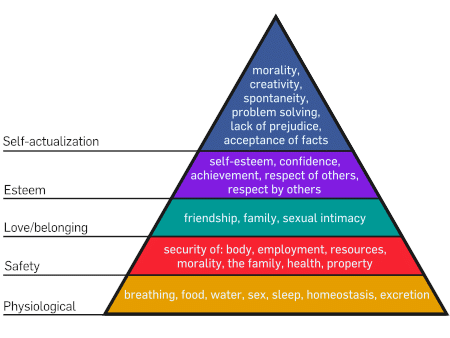Managing Remote Teams in Interesting Times
It doesn’t matter if you’re new to managing a remote team or you’ve been doing it for years, things are not normal now, and there are challenges you are probably struggling to figure out. At the time of this writing, we are in lockdown during the global COVID-19 pandemic. I’ve seen lots of advice posted on working or managing remote teams during normal periods. I thought some advice about managing during the non-typical times we find ourselves in might be helpful.
At Farsight, our team has been fully remote since the company was founded in 2013. I’ve worked for globally distributed teams since 2006. In this piece I will share some of my formative experiences and relate how they inform my management of remote teams with or without a global crisis.
I learned most of what I know about working under adverse conditions when my youngest was born early at 28 weeks. As you might expect, this led us to a protracted hospital stay with a seemingly unending array of medical complications. At the time, I was an individual contributor working with a distributed team for a global tech company. When I reflect on that time, I realize that I was a first-hand observer to a masterclass in taking good care of your people. I later learned that my manager got into some hot water with HR for the way he handled the paperwork and my related absence; apparently there should have been MUCH more paperwork. I’ll never be able to measure the difference that hearing “Just go, take care of your family” made, but I know it was significant.
Maslow always wins
In his Hierarchy of Needs, Abraham Maslow describes a pyramid where the foundational layers covering basic physiological needs like food, water, oxygen, and shelter must be satisfied before addressing aspects of the sequentially higher layers like safety, belonging, esteem, and self-actualization. Events that threaten the lower layers can instantly re-prioritize your life. Sitting in a Neonatal Intensive Care Unit (NICU) at 4:30 am watching your two-pound baby fight for life certainly puts using the correct cover-page for your most recent TPS report into a different perspective.

COVID-19 presents many with real life-and-death struggles. Even if the members of your team aren’t fighting for their lives or waiting for news from loved ones who are, they are spending more time than normal working on the lower layers of Maslow’s stack. This impacts their ability to focus and get work done effectively. When checking in with your team, keep an eye on what level they are working at. That level will give you a good idea where they are in terms of focus, and it may give you ideas on how to better support them.
Time loses all meaning
Meteorologists reporting the day of the week is a good indicator that, for many, the days in isolation are starting to blend together. In a critical-care NICU, time of day or day of week literally doesn’t matter. Pagers go off when they are needed, 12- or 24-hour shifts, and parents standing watch. During that time in the NICU, I spent hundreds of hours at my child’s bedside. Thanks to quality campus Wi-Fi and periods of quiet, many of those hours involved my laptop. Yes, I was getting some work tasks done, but at some really strange hours. It also meant that I was available both at work and in the hospital if a sudden need arose. While I’ll never assert that this period of my life resulted in my best work, I will always treasure the fact that I was able to be there in support of my child. There were a number of times where being close at hand improved the outcome.
Today our shelter-in-place lives hopefully aren’t filled with serial emergencies like in a NICU. Yet changes to routine and schedule can impact the way that our teams interact with the outside world. Even adjusting to a change in grocery store hours can have an unexpected impact on a team members schedule. It is important to maintain an open dialog with your team about schedules and timing. You can’t prevent variance, but you can prepare for it.
Escapism will only get you so far
While it’s one thing to work during a crisis, it is another thing entirely to work to avoid facing a crisis. Work as a form of escape is nothing new especially in technology. We need to remember that everyone needs to take occasional time off.
Throughout the seven weeks in the hospital, we took a couple of days to go back home to sleep in our own bed and take care of things around the house. It was a valuable reminder that there was a normal life out there waiting for us when our time in the NICU was done. During an event like the COVID-19 pandemic, that reminder is even more critical. Even if your team can’t “go” anywhere due to shelter-in-place orders, they still need time away from their desks and tasks. I approach this by modeling good behavior. Take a day here and there to clear your head and show your team that it’s okay to do the same. With everyone at home 24×7, it’s important to step away from the keyboard and be with your family.
Conclusion
Leading a team in a crisis is frequently more about getting the whole team to the other side than it is about productivity and efficiency. Work does need to be completed, but we have to keep in mind that true inspiration and creativity are hard to come by when you are worried about the health and safety of your friends and family or where your next roll of toilet-paper is coming from.
As for that two-pound baby, much has happened in the intervening 12 years. The very rough start has given way to a very typical childhood. As hard as it was at the time, given the outcome, I wouldn’t change a thing. Take care of yourselves and your teams.
Note: The Image Source can be found here.
Ben April is the Chief Technology Officer for Farsight Security®, Inc..




